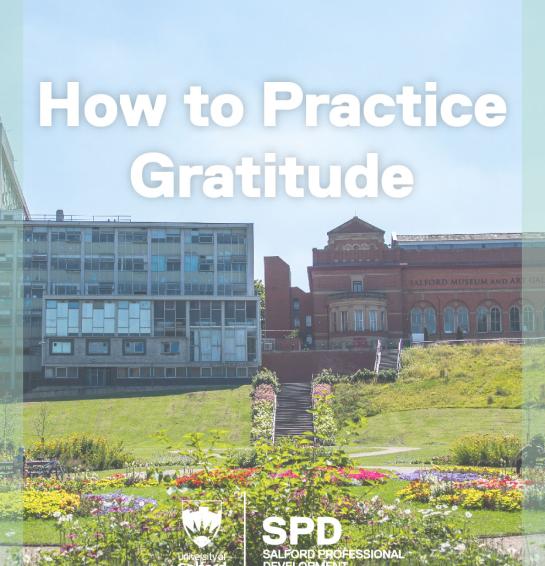How to Practice Gratitude
How to Practice Gratitude
“Gratitude makes sense of our past, brings peace for today, and creates a vision for tomorrow.” - Melody Beattie
Gratitude can be known as showing appreciation for the positive things you have within your life. It can be extremely beneficial to people’s mental wellbeing when practices. Many people face issues with mental health in the workplace, with stress over 79% of respondents to CIPD’s Health and Wellbeing at work survey reporting absence due to stress in the year 2022. Here are some of the main ways that gratitude can help to positively impact people’s lives.
Gratitude journals
Gratitude journaling is a valuable practice for fostering a positive outlook on life. By consistently recording and reflecting on the blessings and positive aspects of your life, you actively reinforce feelings of appreciation. This process serves as a reminder of the abundance of goodness that surrounds you, even during challenging times. Through gratitude journaling you not only celebrate the great things in your life, but also cultivate a mindset of thankfulness that can lead to increased happiness and well-being.
Be present
Being present is often underestimated in our fast-paced lives, but it’s a vital practice for mindfulness and self-awareness. It entails more than just existing in a place, it’s about consciously engaging with your surroundings and feelings. Paying attention to your sense and emotions in specific situations can provide valuable insights into your experiences. By doing so you can better understand yourself and your reactions, leading to personal growth.
Give thanks
Expressing gratitude verbally is a simple yet powerful way to strengthen your relationships. When you thank people who have been supportive and let them know you’re grateful, it not only shows your appreciation but also reinforces your own awareness of the value they bring to your life. This act can deepen your connection with others and create a sense of mutual appreciation, which will lead to a supportive environment.
Avoid comparison
A well known saying ‘comparison is the thief of joy’ is very applicable when understanding gratitude. If we constantly measure ourselves against others it can lead to feelings of inadequacy or jealousy. Instead, we should embrace our own path in life and work towards goals and aspirations. By doing this it will create a more authentic and fulfilling life that isn’t defined by external standards or comparisons.
To conclude, gratitude serves as a vital tool for anchoring yourself amongst lifes challenges and helps enrich the human experience. By incorporating these daily practices, you can cultivate a profound sense of appreciation that not only grounds you but also infuses your life with authenticity and positivity. Embracing gratitude allows you to find the meaning in even the smallest moments.


